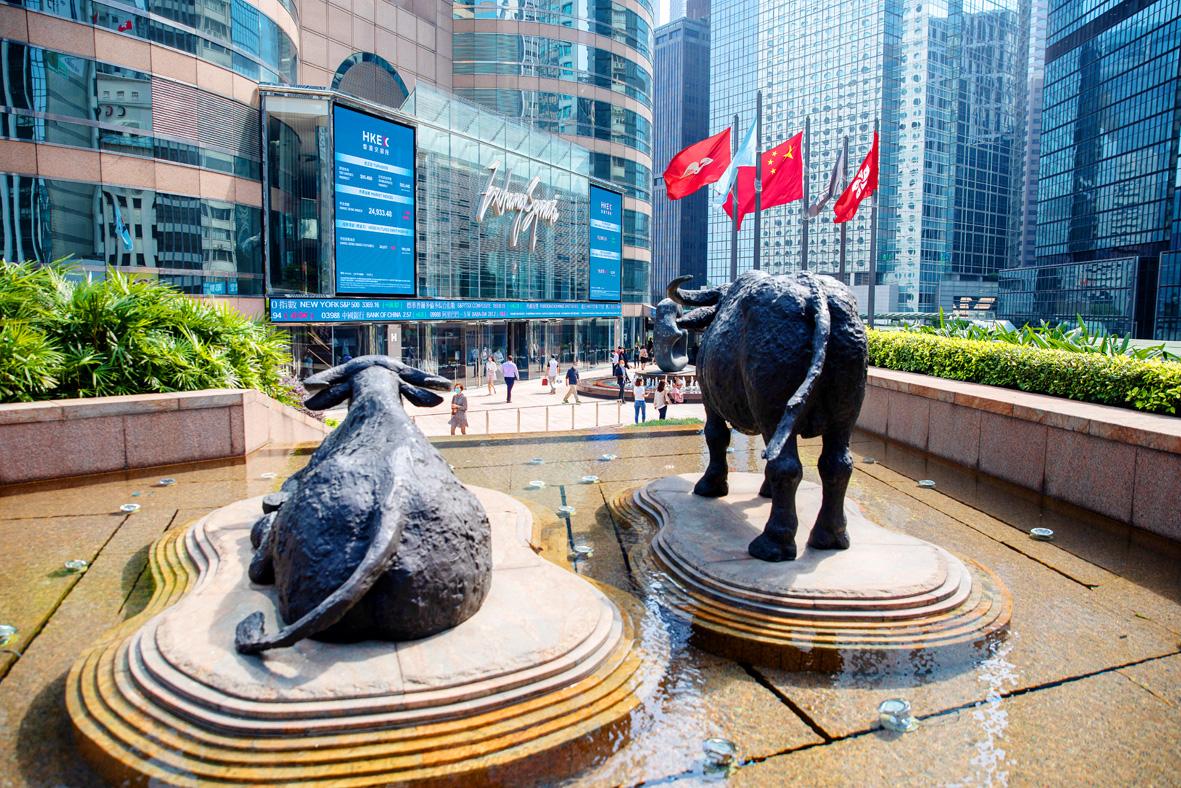The Hong Kong Government might order Hong Kong universities to cease exchanges with Taiwanese universities to prevent students’ involvement in political activities, a source said yesterday.
National security legislation imposed on the territory by Beijing in June empowers the Hong Kong government to interfere in educational exchanges.
Article 9 of the Law of the People’s Republic of China on Safeguarding National Security in the Hong Kong Special Administrative Region stipulates that the Hong Kong government “shall take necessary measures to strengthen ... supervision and regulation over matters concerning national security, including those relating to schools.”

Photo: EPA-EFE
Hong Kong government officials believe that the Democratic Progressive Party is influencing Hong Kong students in Taiwan and encouraging them to take part in “subversive activities” when they return home, the source said.
Beijing has asked the Hong Kong government to revise curricula in the territory and plans to require Hong Kong students to visit China at some time during their studies to attend lectures and write reports, the source said, adding that the changes aim to instill patriotism.
Hong Kong Outlanders spokeswoman Justine said that Hong Kong students are already self-censoring out of fear.
Hopefully, Hong Kongers would still be able to study in Taiwan, where they are free to express themselves, and the government offers them scholarships and other assistance, she said.
The Mainland Affairs Council on Saturday said the number of Hong Kong students applying for post-graduate studies this year more than doubled from last year.
This year, 648 Hong Kongers applied for master’s and doctoral degree programs in Taiwan, up from 260 last year, the council said, adding that the increase was likely due to deteriorating human rights conditions in the territory.
The number of Hong Kongers applying for undergraduate programs increased by 26 percent this year to 3,093 applicants, up from 2,463 last year, it said.
The council denied a local media report that applications by Hong Kong students had been delayed due to a high number of applicants.
Applications from overseas students were accepted online from Nov. 1 to Friday, it said, adding that they are being processed.
Due to restrictions on gatherings and movement to curtail the COVID-19 pandemic, some applicants in Hong Kong had to wait until the deadline to submit their documents to Taiwan’s representative office in the territory, it said, adding that the office stayed open late to collect applications.
The Ministry of Education has allowed universities to admit 10 percent more students for the coming academic year, it said.
As schools this year only filled 30 percent of their quotas for students from Macau and Hong Kong, there would be no problem with accepting more students from the territories, the council said.
The ministry has also implemented a new recruitment program for students from Macau and Hong Kong, and commissioned National Taiwan Normal University to open more classes in spring to accommodate them, it said.

US President Donald Trump yesterday announced sweeping "reciprocal tariffs" on US trading partners, including a 32 percent tax on goods from Taiwan that is set to take effect on Wednesday. At a Rose Garden event, Trump declared a 10 percent baseline tax on imports from all countries, with the White House saying it would take effect on Saturday. Countries with larger trade surpluses with the US would face higher duties beginning on Wednesday, including Taiwan (32 percent), China (34 percent), Japan (24 percent), South Korea (25 percent), Vietnam (46 percent) and Thailand (36 percent). Canada and Mexico, the two largest US trading

AIR SUPPORT: The Ministry of National Defense thanked the US for the delivery, adding that it was an indicator of the White House’s commitment to the Taiwan Relations Act Deputy Minister of National Defense Po Horng-huei (柏鴻輝) and Representative to the US Alexander Yui on Friday attended a delivery ceremony for the first of Taiwan’s long-awaited 66 F-16C/D Block 70 jets at a Lockheed Martin Corp factory in Greenville, South Carolina. “We are so proud to be the global home of the F-16 and to support Taiwan’s air defense capabilities,” US Representative William Timmons wrote on X, alongside a photograph of Taiwanese and US officials at the event. The F-16C/D Block 70 jets Taiwan ordered have the same capabilities as aircraft that had been upgraded to F-16Vs. The batch of Lockheed Martin

GRIDLOCK: The National Fire Agency’s Special Search and Rescue team is on standby to travel to the countries to help out with the rescue effort A powerful earthquake rocked Myanmar and neighboring Thailand yesterday, killing at least three people in Bangkok and burying dozens when a high-rise building under construction collapsed. Footage shared on social media from Myanmar’s second-largest city showed widespread destruction, raising fears that many were trapped under the rubble or killed. The magnitude 7.7 earthquake, with an epicenter near Mandalay in Myanmar, struck at midday and was followed by a strong magnitude 6.4 aftershock. The extent of death, injury and destruction — especially in Myanmar, which is embroiled in a civil war and where information is tightly controlled at the best of times —

China's military today said it began joint army, navy and rocket force exercises around Taiwan to "serve as a stern warning and powerful deterrent against Taiwanese independence," calling President William Lai (賴清德) a "parasite." The exercises come after Lai called Beijing a "foreign hostile force" last month. More than 10 Chinese military ships approached close to Taiwan's 24 nautical mile (44.4km) contiguous zone this morning and Taiwan sent its own warships to respond, two senior Taiwanese officials said. Taiwan has not yet detected any live fire by the Chinese military so far, one of the officials said. The drills took place after US Secretary